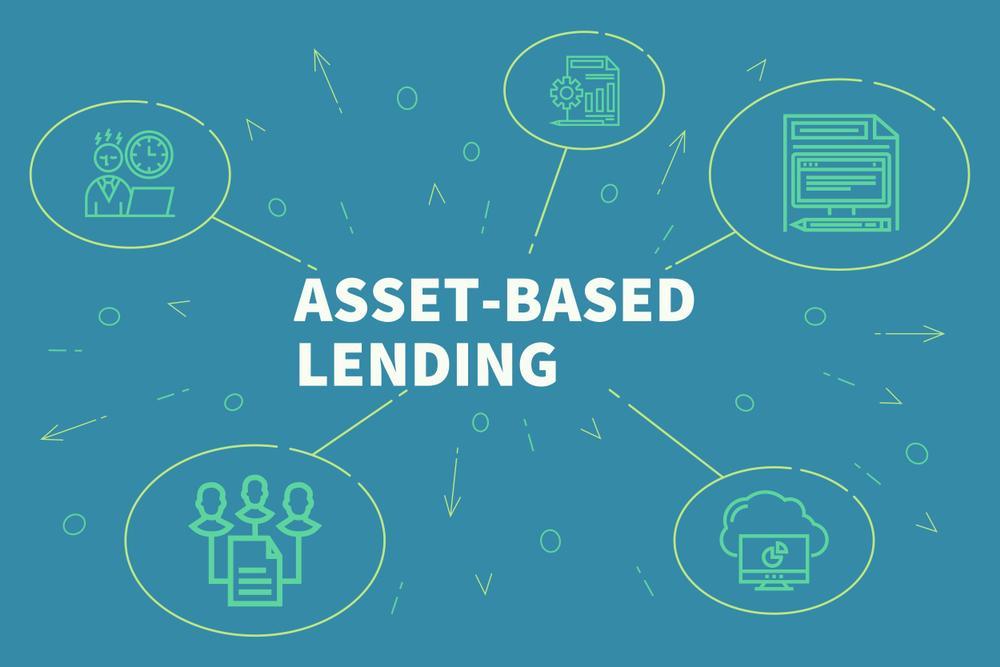Introduction to Asset-Based Lending
As a business owner, you are constantly looking for ways to grow and expand your operations. One of the key challenges you may face is securing the necessary funds to fuel your business growth. This is where asset-based lending comes into play. Asset-based lending is a financing option that allows businesses to leverage their assets to obtain a loan. In simpler terms, it is a form of borrowing money against the value of your company’s assets, such as accounts receivable, inventory, or equipment.
How Asset-Based Lending Works
Asset-based lending works by using your company’s assets as collateral for the loan. Instead of relying solely on your creditworthiness, lenders assess the value of your assets and offer a loan amount based on that value. This provides lenders with a level of security, as they have the option to seize and sell the assets in case of default. The loan amount is typically a percentage of the appraised value of the assets, and the interest rates may vary depending on the lender and the risk involved.
Asset-based lending is a flexible financing option, as it allows businesses to unlock the value of their assets and use the funds for various purposes. Whether you need to finance working capital, purchase new equipment, or expand your operations, asset-based lending can provide the necessary funds to support your business growth.
Benefits of Asset-Based Lending
1. Access to Capital
One of the main advantages of asset-based lending is that it provides businesses with access to capital that may otherwise be unavailable through traditional financing options. Banks and other financial institutions often have strict lending criteria, making it difficult for businesses with limited credit history or poor credit scores to secure a loan. Asset-based lending, on the other hand, focuses more on the value of the assets rather than the borrower’s creditworthiness. This opens up opportunities for businesses to obtain the necessary funds and fuel their growth.
2. Improved Cash Flow
Cash flow is the lifeblood of any business. Insufficient cash flow can hinder growth and limit opportunities for expansion. Asset-based lending can help improve your cash flow by providing immediate access to funds. Instead of waiting for customers to pay their invoices or for inventory to be sold, you can use your assets as collateral and obtain a loan to bridge the gap. This can help you meet your financial obligations, pay your suppliers on time, and invest in growth opportunities without disrupting your operations.
3. Flexibility
Asset-based lending offers businesses the flexibility to use the loan funds for various purposes. Whether you need to purchase new equipment, hire additional staff, or invest in marketing campaigns, asset-based lending can provide the necessary funds. Unlike traditional loans that may have restrictions on how the funds can be used, asset-based lending allows you to use the funds in a way that best suits your business needs. This flexibility can be particularly beneficial for businesses that are looking to seize growth opportunities or navigate through challenging times.
Asset-Based Lending in India: An Overview
India is a thriving economy with a diverse range of businesses across various industries. The Indian financial sector has recognized the potential of asset-based lending and has embraced this financing option to support businesses in their growth journey. Asset-based lending in India follows a similar framework as in other countries, where lenders assess the value of the assets and offer loans accordingly. However, there are certain factors specific to the Indian market that businesses need to be aware of when considering asset-based lending.
Industries That Can Benefit from Asset-Based Lending in India
Asset-based lending is not limited to a specific industry and can be beneficial across various sectors in India. Some of the industries that can particularly benefit from asset-based lending include:
1. Manufacturing
The manufacturing sector often requires significant capital investment in machinery, equipment, and raw materials. Asset-based lending can provide the necessary funds to purchase new equipment or upgrade existing machinery, enabling manufacturers to improve productivity and meet customer demands.
2. Retail
Retail businesses often face challenges related to inventory management and cash flow. Asset-based lending can help retailers manage their inventory levels, finance seasonal fluctuations, and seize growth opportunities by providing immediate access to funds.
3. Construction
The construction industry is capital-intensive and requires substantial investment in equipment, materials, and labor. Asset-based lending can help construction companies finance their projects, purchase necessary equipment, and bridge the gap between project milestones.
Challenges of Asset-Based Lending in India
While asset-based lending offers numerous advantages, there are also certain challenges that businesses need to be aware of when considering this financing option in India. Some of the challenges include:
1. Lack of Awareness
Many businesses in India are not familiar with the concept of asset-based lending and may not be aware of the potential benefits it can offer. This lack of awareness can hinder businesses from exploring this financing option and leveraging their assets to unlock growth opportunities.
2. Limited Options
Compared to other countries, the asset-based lending market in India is still developing. This means that businesses may have limited options when it comes to choosing a lender and negotiating favorable terms. However, as the market continues to evolve, more lenders are expected to enter the space, providing businesses with a wider range of options.
3. Evaluation Process
The evaluation process for asset-based lending in India can be rigorous and time-consuming. Lenders typically assess the value of the assets, the financial health of the business, and the potential risks involved. This evaluation process may require businesses to provide detailed documentation and financial statements, which can be challenging for small and medium-sized enterprises.
How to Qualify for Asset-Based Lending in India
Qualifying for asset-based lending in India requires businesses to meet certain criteria set by the lenders. While the specific requirements may vary depending on the lender and the nature of the assets, there are some common factors that businesses should consider:
1. Asset Value
The value of your assets plays a crucial role in determining your eligibility for asset-based lending. Lenders will assess the value of your assets, such as accounts receivable, inventory, or equipment, and offer a loan amount based on that value. It is important to have a clear understanding of the value of your assets and ensure that they are properly documented.
2. Financial Health
Lenders will also evaluate the financial health of your business to assess its ability to repay the loan. This includes factors such as revenue, profit margins, and cash flow. It is important to have a strong financial track record and be able to demonstrate your ability to generate consistent cash flow.
3. Risk Assessment
Lenders will also consider the potential risks involved in lending to your business. This includes factors such as industry trends, market conditions, and the competitive landscape. It is important to have a clear understanding of the risks associated with your business and be able to address them effectively.
Finding the Right Asset-Based Lending Provider in India
When it comes to asset-based lending, finding the right provider is crucial to ensure a smooth borrowing experience. Here are some factors to consider when choosing an asset-based lending provider in India:
1. Reputation and Experience
Look for a lender with a good reputation and extensive experience in asset-based lending. A reputable lender will have a track record of successfully supporting businesses and providing flexible financing solutions.
2. Industry Expertise
Consider a lender that specializes in your industry or has experience working with businesses similar to yours. This industry expertise can help the lender better understand your needs and tailor the financing solution accordingly.
3. Terms and Conditions
Carefully review the terms and conditions offered by the lender. Pay attention to factors such as interest rates, repayment terms, and any additional fees or charges. It is important to choose a lender that offers favorable terms and conditions that align with your business goals.
Case Studies: Successful Asset-Based Lending in Indian Businesses
Case Study 1: Automotive Manufacturing Company
A leading manufacturer of automotive components in India was facing challenges in financing its working capital needs, which were hindering its growth plans. By leveraging its accounts receivable and inventory as collateral, The Manufacturer was able to secure an asset-based loan from a reputable lender. The loan provided the necessary funds to finance its operations, invest in new equipment, and expand its production capacity. As a result, the company was able to meet customer demands, improve its cash flow, and achieve significant growth in its market share.
Case Study 2: Supermarket chains
A fast-growing chain of supermarkets in India was experiencing rapid expansion and needed funds to finance its inventory and support its working capital requirements. By using its inventory as collateral, The Retail chain secured an asset-based loan from a lender with expertise in the retail industry. The loan allowed the supermarket chain to manage its inventory levels effectively, finance its growth plans, and seize new market opportunities. As a result, The Supermarket chain was able to strengthen its position in the market and achieve consistent growth in its revenue.
Conclusion: Unlocking the Hidden Potential of Your Business with Asset-Based Lending in India
Asset-based lending offers numerous advantages for businesses in India, providing access to capital, improving cash flow, and offering flexibility. While there are challenges and considerations to be mindful of, asset-based lending can be a powerful tool to unlock the hidden potential of your business. By leveraging your assets, you can secure the necessary funds to fuel your growth, invest in new opportunities, and navigate through challenging times. So, if you’re looking to take your business to the next level, exploring Business loan options from Tata Capital. To know more, visit www.tatacapital.com.


 9 mins read
9 mins read

 Previous Post
Previous Post













